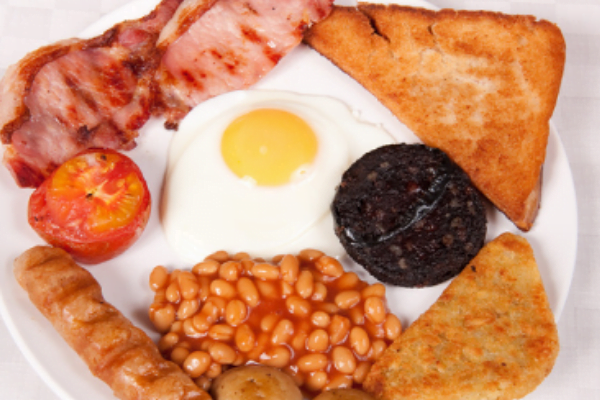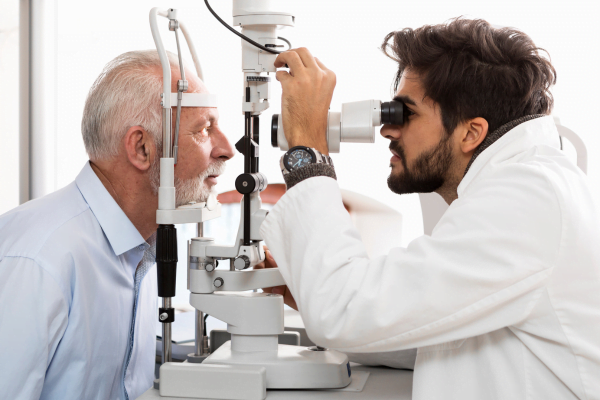What do we mean by breakfast? The term breakfast in English literally refers to the breaking of the fasting period of the previous night. In nutritional terms, breakfast is the first meal consumed within two hours after the longest sleep in any 24 hour period.
Is breakfast really all that important? If I skip breakfast, I would be cutting calories, and that will help me lose weight, wont it? These are questions I get asked all the time.
The answer is not a straight “yes” or “no”.
Before we start looking into the answer, let us define “breakfast”. According to most dictionaries, breakfast is a meal eaten in the morning, the first of the day. So, is breakfast eaten at the same time of the day by every one? No, timing of breakfast varies from person to person and similarly the way breakfast is metabolised also varies. This also depends on whether you have had a big English breakfast with bacon, eggs, hash brown, yoghurt, sausages, fried tomatoes and coffee or a slice of bread with omelette.
Your mother told you that breakfast is the most important meal of the day. If you skip breakfast, you are more likely to snack on energy dense foods such as crisps, chocolate and also have bigger portions of food than you normally would have for lunch.
One research called the “Bath Breakfast project”, published in the American journal of nutrition reported that people who had breakfast did not differ in their weight, body hormones or cholesterol after six weeks, compared to people who had their first meal after 12PM. However, this study is not applicable to everyone.
The idea of skipping breakfast is an easy one to promote. Breakfast does contribute significantly to the total calorie intake so skipping it would ‘save’ calories, which does seem like a good idea on the surface. However, in the long run, just skipping breakfast alone and not changing your life style will not help.
Breakfast, apart from providing energy (calories) to kick start your day, a healthy breakfast provides essential goodness or ‘nutrients’ that the body needs such as fibre, vitamins and iron. Few studies have shown that people who ate breakfast have a more balanced meal than those who skip breakfast. They are less likely to be overweight and have reduced risk of cardiovascular disease and diabetes.
What are the benefits of having breakfast?
Some people say that skipping breakfast makes them grumpy. Studies show that people who eat breakfast tend to be in better moods. Breakfast gets you started on the right track for the day. If you start out with a healthy breakfast, then you set the mood for lunch. You are more likely to choose something healthy for lunch if you have paid some attention to your breakfast choices.
Studies show that eating a healthy breakfast as opposed to eating leftover pizza or curry can provide you:
- A more nutritionally complete diet, higher in nutrients, vitamins and minerals.
- Improved concentration and performance in the classroom or the workplace.
- More strength and endurance for physical activity.
- Lower cholesterol levels
You could include some lean protein in with your breakfast, such as boiled or poached eggs, fat free greek yoghurt, or smoked salmon or kippers on granary toast.
Avoid fried and fatty food in the morning like croissants, parathas, pizza etc
If your healthy breakfast includes (semi-skimmed) milk you can get as much as 35% of your recommended allowance of calcium for the day and the amount of calcium actually increases with lower fat versions. This is more than you can get from an equivalent portion of cottage cheese or yoghurt.
It’s not just the food that is important. You need to make sure that you get plenty of fluids with your breakfast. While your body has been working hard overnight it uses up a great deal of fluids so you are likely to wake up dehydrated. Dehydration leads to your metabolism slowing down to conserve fluids.
What can you have for breakfast?
So, a bowl of high fibre cereal with milk hits the spot. If you are going for a high protein breakfast such as eggs or fish ensure that you drink a tall glass of water (or tea or coffee without sugar) alongside this.
And even if you think you don’t have time to eat breakfast, there are ‘on the move’ options that help get a quick and healthy breakfast, such as:
- Microwaved scrambled eggs with cherry tomatoes
- Crispbreads with low fat cream cheese and salmon
- Instant porridge oats with added berries or seeds
If you are really committed to losing weight and keeping it off, you should get into a habit of planning ahead. Plan the night before for your next day’s meal. It does not matter if you eat immediately after getting up or after a few hours. My experience has shown that those who rush in the morning and skip breakfast, just because they lack time, end up snacking and consuming more calories in a day. Plan ahead and ensure you have everything ready for tomorrow.
Some of the people I see in my clinic tell me that they feel sick if they eat soon after getting up and there are others who tell me, once they start eating, they cannot stop.
If you cannot face eating first thing in the morning, try to eat within two hours of getting up. But when you break your fast, ensure you have some slow release carbohydrates, like wholegrain cereal or boiled eggs. If you have a muffin or chocolates, you will feel hungry and end up eating more.
Beware of breakfast bars or biscuits, they may present themselves as a quick and healthy option but many contain added sugar and are high in calories.
Breakfast bars are no substitute for a bowl of cereal (not the sugary, cereal).
A guideline healthy breakfast should consist of:
- A portion of fruit or vegetables
- 1 portion of carbohydrate and
- 1 portion of protein-rich food
OR
- A portion of fruit or vegetables
- 2 portions of carbohydrate and
- 1 portion of dairy foods
Can I skip breakfast?
So, the answer to the initial question of, can I skip breakfast? is listen to your body. Find out if you are hungry. Are you really hungry or are just tired or even thirsty? It does not matter if you have your breakfast or skip, as long as you are listening to your body and eating a balanced healthy meal for the rest of the day.
The key is not breakfast or no breakfast, the key is to plan ahead, look out for hunger and fullness. Anticipate the barriers which you may come across that day and prepare solutions.
Do browse the resource section in www.simplyweight.co.uk for more breakfast options.
Simplyweight’s Specialist Online Weight Loss Plan has been designed to bring decades of clinical experience to people at an affordable price. To learn more, start your 7-day free trial today: https://app.simplyweight.co.uk/subscribe/free-trial





